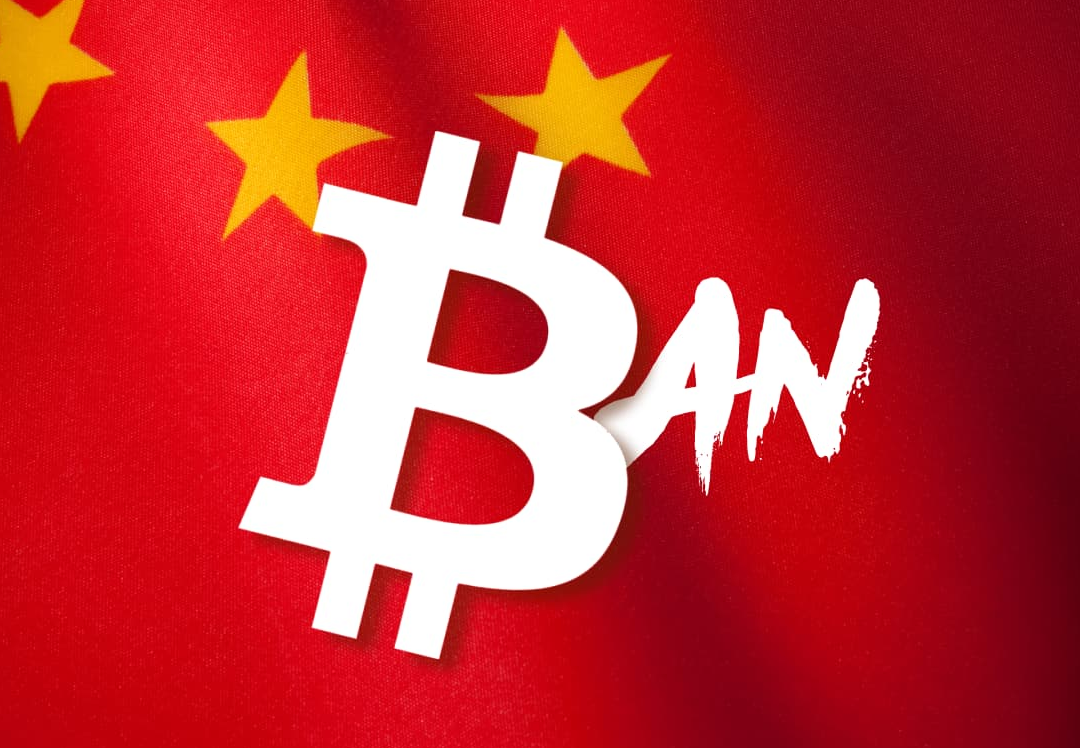China Banned Cryptocurrency - or Did It?
The latest news from China has sent shock waves throughout the cryptocurrency community. It's a reminder that governments will always find ways to regulate or outrightly ban certain technologies aggressively despite all our efforts. But it's essential for us to not just complain about these things - instead we should use them as opportunities to adapt! After all: "All regulation creates room for innovation!"
The purpose of this article is to summarize what happened between the central and Local Governments in China and to expand on how their approach differs from past bans.
CENTRAL AND LOCAL GOVERNMENTS IN CHINA
One of the things that China invented was bureaucracy; the country is known for its vast and sprawling network of officials, agencies, and governments sending documents and letters from one Office to another; to this end, the message behind a bill can be unclear.
When evaluating the Chinese Regulation, the first criteria which one should pay attention to is the Office (authority) that issues the notice and who the recipients are. Bill on 9/24 was issued by the People's Bank of China, several Central Government agencies, and the Local Governments. The Local Government had to get involved because they were in charge of implementing regulations.
It is the duty of the local Government to enforce filed charges, arrest individuals, or physically shut down mines. The fact is, the Local Government is in control of large territories, and it is a daunting task - for example, the Guangdong province has a population equivalent to the size of Japan.
The local governments can't be overtly insubordinate, but they are getting many conflicting directives from the Central Government at the same time. While the People's Bank of China wants the local governments to crack down on cryptocurrency, the Local Governments are also being ordered to promote technology and keep the employment rate high. This has led to frustration among unemployed citizens who lost their jobs at mines that were shut down. They won't show up at the People's Bank of China office in Beijing; instead, they will likely go on a protest outside the Local Government.
Since the local governments keep receiving many conflicting messages from the central Government, they had to perform their duties under pressure. However, the idea of shutting down mines and crypto exchanges wasn't welcome, so the implementation was done at a snail pace.
The other factor to consider is who issues the Bill. The Bill was issued by the People's Bank of China and other agencies. These agencies are not vested with the authority to issue orders to local governments; only the political leadership (such as the Politburo and the State Council) can operate in such offices.
For example, if the notice were issued by the General Secretary, President Xi Jinping, the Politburo, or the State Council, the Local Governments would be obliged to comply. But this notice didn't come from the political leadership, and they likely have more important things to work on than micromanaging cryptocurrency.
So without direct orders from the political leadership, you end up with a negotiation between the Central Government and Local Governments. This is one of the major reasons why the Chinese Government has repeatedly banned cryptocurrencies. Central government agencies send directives to local governments; these orders are often implemented with laxity. This means not all directives from the Central Government are acted on by the Local Government.
WHAT'S THE PURPOSE OF THIS NOTICE?
The title of the notice refers to financial risk. The Chinese Government is doing all it can to reduce the risk of debt and encourage economic growth. This is one reason they stood against Evergrande.
The Central Government is worried about bubbles and speculation. However, Local Governments are more focused on jobs and economic growth. To this end, their relationship creates a business cycle where the central authorities get more assertive when necessary to settle the economy.
In contrast, once there is a need for economic growth, there is less pressure from the Central Government, and the Local Governments start funding new projects. This boom-bust cycle has happened repeatedly over the last couple of years; however, this is the first time the country has experienced a tightening cycle after cryptocurrencies have become prevalent.
Also, the discussion of financial risk suggests that the People's Bank of China is more concerned about things like Evergrande. In addition, there's a shortage of power, which indicates that power usage in mining is majorly the responsibility of the Central Government.
LOOPHOLES IN THE NOTICE
The Chinese constitution has lots of restrictions. These restrictions have led to spontaneous reactions from its citizens. However, if you read the Bill carefully, you will find that among all of the things that you can't do, the notice neglects to mention a few things.
There are some significant loopholes in the notice. The first factor to consider was that the Bill was issued by the People's Bank of China and its associated agencies. However, the political leadership has not mentioned anything about cryptocurrency, suggesting that they are not directly interested in it.
While the Bill states that cryptocurrency transactions are illegal, it does not specify any penalties for engaging in a transaction. The significant effect of the notice is by declaring the transactions illegal; one cannot use the courts to enforce a contract involving cryptocurrency, which means you cannot do any derivatives with cryptocurrencies or use it as collateral for a loan.
However, no sentence serves as a penalty for holding, using, or selling cryptocurrencies. Above all, the issuing agencies are not vested with the authority to impose criminal or civil sanctions.
Another interesting loophole is that while the notice states that it is illegal for foreign exchanges to do business with Mainland Chinese customers, it didn't specify that users in the Mainland can't act like criminals to access a foreign site.
As far as the P2P platform allows Mainland Chinese to trade with each other, it is unclear what the future holds. At the time of this writing, a significant number of exchanges are still operating CNY P2P trading for cryptocurrencies.
Finally, the Bill does not mention blockchain or NFTs. This is not considered a substantial financial risk for the People's Bank of China.
CONCLUSION
While the Bill involves strict regulations, it's unspecific in terms of sanctions. There is a vast underground market for cryptocurrency in China, and completely shutting down that market will take far more effort than passing a bill.
Given that China has repeatedly banned bitcoin in the past, which only resulted in temporary setbacks, we're likely to consider this as one of those temporary setbacks. Ultimately the technology is just too valuable to be completely wiped out.
FREQUENTLY ASKED QUESTIONS
Q. What did the Chinese Government exactly do?
A. The People's Bank of China and several other agencies of the Central Government issued a bill on cryptocurrencies. Along with a notice that answers questions about the Bill.
http://www.pbc.gov.cn/goutongjiaoliu/113456/113469/4348521/index.html http://www.pbc.gov.cn/goutongjiaoliu/113456/113469/4348556/index.html
Q. Is this the end for cryptocurrencies in China?
A. Very unlikely. The notice was issued by the People's Bank of China rather than by the top political leadership. It was addressed to Local governments that have the actual power to shut down cryptocurrencies. It is better to view the Bill less as an order to be followed but rather as part of a conversation where central government agencies have one set of goals. Still, the top political leadership and local governments may have another.
Q. Why did the People's Bank of China issue this notice?
A. The PBC is concerned about financial risk, especially as it is now dealing with the Evergrande issues. They don't want a bubble to form. They are also worried that real estate companies facing financial challenges might be tempted to gamble on cryptocurrencies to save themselves.
Q. What is likely to happen to the price of bitcoin?
A. The Bill had a short-term drop in the price of bitcoin. Ultimately these notices may slow the adoption of cryptocurrencies but are unlikely to stop them completely.
This communication is intended as strictly informational, and nothing herein constitutes an offer or a recommendation to buy, sell, or retain any specific product, security or investment, or to utilise or refrain from utilising any particular service. The use of the products and services referred to herein may be subject to certain limitations in specific jurisdictions. This communication does not constitute and shall under no circumstances be deemed to constitute investment advice. This communication is not intended to constitute a public offering of securities within the meaning of any applicable legislation.





